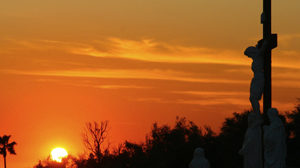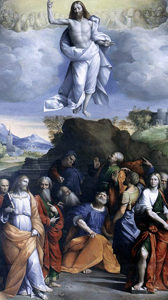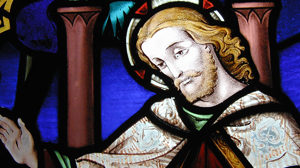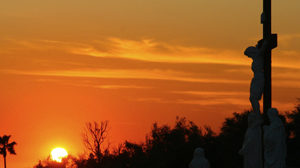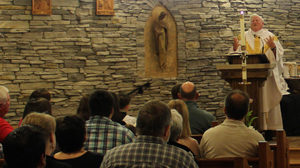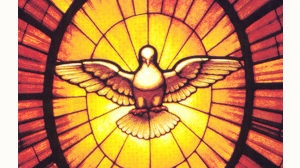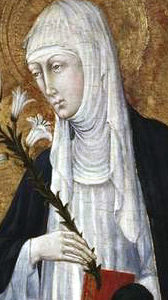Reflection:
The Spirit Will Bring us Peace
In our Easter readings what takes place in Acts sometimes is illustrated in what we hear Jesus say in the gospel of John. Today Paul baptizes in the name of Jesus a group of disciples who were baptized with John’s baptism of repentance. When Paul lays hands upon them they are filled with the Holy Spirit. They receive a gift, the gift that makes the absent one present.
John tells us that as we live in the in between time, after Jesus departure, the Holy Spirit will enable us to live with faith, love, joy and peace. In the confusion and challenges of life the Spirit brings the life giving presence of the absent one into our worshipping community.
Our parish school community suffered the death of a young teacher whose funeral we celebrated on the feast of the Ascension. The words of Scripture during these Easter days became very real as we hear the promise that Jesus will be with us in such sorrow.
Jesus gives glory to the Father as he loves Him and loves us even to death on the Cross, and he is also glorified. His death is victory over sin and death for us. Like Jesus we suffer many deaths, and we pass over from death with him to victory. We who are one with him are told to ask the Father anything. Ultimately at the funeral we commended our friend and third grade teacher into God’s hands, we could do no more as the thin thread that held us to her was severed. We asked God’s comfort and love to embrace her.
On the feast of the Ascension we heard the words addressed to the disciples as Jesus leaves them: as you now see him leave you, again you will see him return to you. How comforting. Jesus we see, we know, he is like us. And so one who is familiar will come back to us. Until then the one familiar, although absent, welcomes us as we come to him. The poet Gerard Manley Hopkins describes such a welcome in The Wreck of the Deutschland, Our Lord coming to take a drowning nun to himself. He comes not as a dooms-day, dark as he came, but rather as gentle as a shower on the shire, he comes royally reclaiming his own, the Christ of the Father compassionate.
All who suffer the loss of one they love themselves suffer a death. We share the cross and their death, and one with Our Lord, we share their victory. The Spirit given as a gift in Acts, the Spirit who will bring the disciples of Jesus understanding, and we, in line behind them, who await to celebrate the gift of the Holy Spirit are led from death to life on the journey of our faith. Trust that what we ask in our confusion the Father who loves us as he loves the Son will give us. John tells us that we must ask the Father for what we need. The gift of the Spirit will be with us always to help and guide us. We may be at peace.
Fr. William Murphy, CP is the pastor of Immaculate Conception parish in Jamaica, New York.

